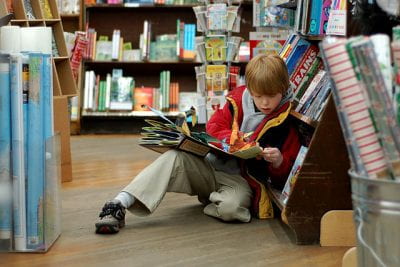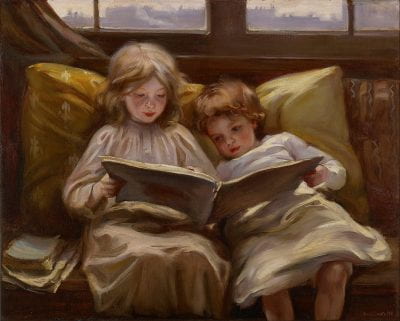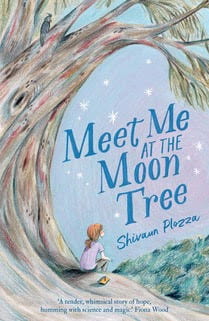
Child reading at Brookline Booksmith.jpg
Our thanks to those of you able to join us for our book club meeting to share your favourite Non Fiction picks. As always, so many of you had so many wonderful contributions to share with us, and it is very appreciated.
This was our fourth book club meeting for 2022, and we look forward to chatting with you again at our next meeting on Wednesday August 10 to discuss the topic: Books for Reluctant Readers. This topic has been one of our most popular in past book club meetings. We’d like to engage with new recommendations, revisit old favourites and consider strategies that help school libraries support their reluctant readers
Disclaimer: The lists generated as a result of Book Club discussions are not, by any means, an exhaustive list of all titles or authors for each genre/category discussed. Nor will all titles be suitable for all libraries. We advise staff discretion when referencing these lists, to properly confirm individual title suitability for individual libraries, school and students needs. These are suggested titles only, shared by our members and inclusion on, or exclusion from, a list does not suggest SLAV endorsement or rejection of a title.
Biography/ Auto Biography
It’s Trevor Noah: Born a Crime: (YA edition) Trevor Noah https://www.readings.com.au/products/26362986/its-trevor-noah-born-a-crime-ya-edition
Stolen Science: Thirteen Untold Stories of Scientists and Inventors Almost Written out of History
Ella Schwartz, Gaby D’Alessandro
https://www.readings.com.au/products/33519384/stolen-science-thirteen-untold-stories-of-scientists-and-inventors-almost-written-out-of-history
The Missing: The True Story of My Family in World War II
Michael Rosen
https://www.readings.com.au/products/33504834/the-missing-the-true-story-of-my-family-in-world-war-ii
365 Real-Life Superheroes
Valentina Camerini
https://www.readings.com.au/products/31822668/365-real-life-superheroes
Looking for Heroes: One Boy, One Year, 100 Letters
Liisa S Ogburn, Aidan A Colvin
https://www.readings.com.au/products/22984731/looking-for-heroes-one-boy-one-year-100-letters
Rescue
David Long (Author), Kerry Hyndman
https://www.readings.com.au/products/32084191/rescue
Rejected Princesses: Tales of History’s Boldest Heroines, Hellions, and Heretics by Jason Porath https://www.readings.com.au/products/22054173/rejected-princesses-tales-of-historys-boldest-heroines-hellions-and-heretics
Good Night Stories For Rebel Girls: 100 Immigrant Women Who Changed The World by Elena Favilli https://www.readings.com.au/products/32689349/good-night-stories-for-rebel-girls-100-immigrant-women-who-changed-the-world
Stories for South Asian Supergirls by Raj Kaur Khaira https://www.readings.com.au/products/34215640/stories-for-south-asian-supergirls
Rise Up: Ordinary Kids with Extraordinary Stories by Amanda Li, Amy Blackwell
https://www.readings.com.au/products/30005242/rise-up-ordinary-kids-with-extraordinary-stories
A Different Sort of Normal by Abigail Balfe https://www.readings.com.au/products/33474833/a-different-sort-of-normal
The First Scientists: Deadly Inventions and Innovations from Australia’s First Peoples by Corey Tutt https://www.readings.com.au/products/33865889/the-first-scientists-deadly-inventions-and-innovations-from-australias-first-peoples
Heroes, Rebels and Innovators: Inspiring Aboriginal and Torres Strait Islander people from history by Karen Wyld, Jaelyn Biumaiwai https://www.readings.com.au/products/33495703/heroes-rebels-and-innovators-inspiring-aboriginal-and-torres-strait-islander-people-from-history
Able: Fully Updated Edition by Dylan Alcott https://www.readings.com.au/products/28423908/able-fully-updated-edition
Holocaust by DOLAN HUGH, Adrian Barbu https://www.readings.com.au/products/33406409/holocaust
Sport
Unbelievable Football: Winner of the Telegraph Children’s Sports Book of the Year 2020
Matt Oldfield, Ollie Mann
https://www.readings.com.au/products/28351559/unbelievable-football-winner-of-the-telegraph-childrens-sports-book-of-the-year-2020
Football School Terrific Teams: 50 True Stories of Football’s Greatest Sides by Alex Bellos, Ben Lyttleton, Spike Gerrell
https://www.readings.com.au/products/33549748/football-school-terrific-teams-50-true-stories-of-footballs-greatest-sides
Football School Epic Heroes: 50 true tales that shook the world
Alex Bellos, Ben Lyttleton, Spike Gerrell
https://www.readings.com.au/products/32717105/football-school-epic-heroes-50-true-tales-that-shook-the-world
Football Legends 2022: Top 100 stars of the modern game
David Ballheimer, Opta Sports
https://www.readings.com.au/products/33586092/football-legends-2022-top-100-stars-of-the-modern-game
F2: Ultimate Footballer: BECOME THE PERFECT FOOTBALLER WITH THE F2’S NEW BOOK!: (Skills Book 4)
The F2
https://www.readings.com.au/products/29937445/f2-ultimate-footballer-become-the-perfect-footballer-with-the-f2s-new-book-skills-book-4
Stars of the NBA
Kjartan Atli Kjartansson
https://www.readings.com.au/products/33595782/stars-of-the-nba
FIFA World Football Records 2022
Keir Radnedge
https://www.readings.com.au/products/33676082/fifa-world-football-records-2022
Animals/Environment
Finding Gobi (Younger Readers edition)
Dion Leonard
https://www.readings.com.au/products/23772562/finding-gobi-younger-readers-edition
The Gentle Genius of Trees by Phillip Bunting https://www.readings.com.au/products/33497412/the-gentle-genius-of-trees
Weird But True’ series by Nat Geo Kids https://www.readings.com.au/products/20987376/nat-geo-kids-weird-but-true-ripped-from-the-headlines-3
Tim Flannery Series https://www.readings.com.au/products/29598891/explore-your-world-weird-wild-amazing
Stand up for the future https://www.readings.com.au/products/26210620/stand-up-for-the-future-a-celebration-of-inspirational-young-australians
With a Dog’s Love: Clever Dogs Helping Humans by Gina Dawson https://www.readings.com.au/products/34251481/with-a-dogs-love-clever-dogs-helping-humans
Walking in Gagudju Country by Diane Lucas, Ben Tyler, Emma Long https://www.readings.com.au/products/33523197/walking-in-gagudju-country
Book of Curious Birds by Jennifer Cossins https://www.readings.com.au/products/33748907/book-of-curious-birds
The Illustrated Encyclopaedia of Peculiar Pairs in Nature by Sami Bayly https://www.readings.com.au/products/33665861/the-illustrated-encyclopaedia-of-peculiar-pairs-in-nature
Popular Culture
Ninja: Get Good: My Ultimate Guide to Gaming by Tyler ‘Ninja’ Blevins https://www.readings.com.au/products/28770118/ninja-get-good-my-ultimate-guide-to-gaming
The Ultimate Superhero Movie Guide: The definitive handbook for comic book film fans
Helen O’Hara
https://www.readings.com.au/products/27754564/the-ultimate-superhero-movie-guide-the-definitive-handbook-for-comic-book-film-fans
The World of Avatar: A Visual Exploration
Joshua Izzo
https://www.readings.com.au/products/27628093/the-world-of-avatar-a-visual-exploration
Complex Presents: Sneaker of the Year: The Best Since ‘85
Complex Media, Inc., Marc Ecko
https://www.readings.com.au/products/32866170/complex-presents-sneaker-of-the-year-the-best-since-85
Crystals: Everything you need to know to Heal, Cleanse, Love, Energize by Cassandra Eason https://www.readings.com.au/products/24375598/crystals-everything-you-need-to-know-to-heal-cleanse-love-energize
Google It: A History of Google by Anna Crowley Redding
https://www.readings.com.au/products/33430860/google-it-a-history-of-google
Are You Afraid Yet?
Stephen James O’Meara, Jeremy Kaposy
https://www.readings.com.au/products/4687128/are-you-afraid-yet
Aliens, Ghosts and Vanishings: Strange and Possibly True Australian Stories
Stella Tarakson, Richard Morden
https://www.readings.com.au/products/21981225/aliens-ghosts-and-vanishings-strange-and-possibly-true-australian-stories
An Illustrated History of UFOs by Adam Allsuch Boardman
https://www.readings.com.au/products/32799126/an-illustrated-history-of-ufos
History
Underground: Marsupial Outlaws and Other Rebels of Australia’s War in Vietnam by Mirranda Burton https://www.readings.com.au/products/33712647/underground-marsupial-outlaws-and-other-rebels-of-australias-war-in-vietnam
Sapiens Graphic Novel (Volume 1) by Yuval Noah Harari, Daniel Casanave, David Vandermeulen https://www.readings.com.au/products/33022493/sapiens-graphic-novel-volume-1
The Bomber Mafia by Malcolm Gladwell https://www.readings.com.au/products/33532144/the-bomber-mafia
Adult
The Boy Behind the Curtain by Tim Winton https://www.readings.com.au/products/23899122/the-boy-behind-the-curtain
Cold Enough for Snow by Jessica Au https://www.readings.com.au/products/34432167/cold-enough-for-snow
The Golden Book by Kate Ryan https://www.readings.com.au/products/33520392/the-golden-book
The Winter Dress by Lauren Chater https://www.readings.com.au/products/33810738/the-winter-dress
Careering by Daisy Buchanan https://www.readings.com.au/products/34295064/careering
Drive Your Plow Over the Bones of the Dead by Olga Tokarczuk https://www.readings.com.au/products/25586213/drive-your-plow-over-the-bones-of-the-dead
Before You Knew My Name by Jacqueline Bublitz https://www.readings.com.au/products/33470299/before-you-knew-my-name
Circe by Madeline Miller https://www.readings.com.au/products/26360827/circe
Joanne, Wantirna College – shared via email
Popular science:
- Humble Pi : a comedy of math errors by Matt Parker (2020)
- What if? : serious scientific answers to absurd hypothetical questions by Randall Munroe (2015)
- Gory details : adventures from the dark side of science by Erika Engelhaupt (2020)
- Dr Karl books
Other:
- Sport bios – mainly AFL and basketball
- Guinness Book of Records
- Ripley’s Believe it or Not
- The animal book : a visual encyclopedia of life on Earth by David Burnie. (DK 2013)
- Joke books
Pam Saunders – shared via email
Life in five seconds. 1623650127 #Humour #short
This is not a sex book 9781786693037 #sexed (constantly stolen or moved or falling apart)
Fifty _____ ideas you really need to know (various titles in series published by Quercus) #shortfunfacts
Sneakers the complete limited edition guide 9780500517284 (maybe dated by now) #fashion
The intelligent investor 9780060555665 #shares #makingmoney
Beginners guide to the stock market 978-1099617201 #makingmoney
Zen Pencils 9781449457952 #humour #short
How to: Absurd scientific advice for common real- world problems 9781473680333 #funfacts
30 Second Series (various titles) by Ivy Press eg 9781782405474 #quicksummaryoftopics
Factfulness: Ten reasons we are wrong about the world …..ISBN13: 9781473637467) #globaliization
 Our thanks to those who were able to join us for our SLAV online Book Club on Wednesday March 20th, 2024, to discuss the topic: Award winners. We all purchase award winners for libraries but what are the titles that really work with young people?
Our thanks to those who were able to join us for our SLAV online Book Club on Wednesday March 20th, 2024, to discuss the topic: Award winners. We all purchase award winners for libraries but what are the titles that really work with young people?
 For those of you who attended the October 26 Reading Forum, you may understand why I was eager to read Shivaun Plozza’s latest young adult novel, “Meet Me at the Moon Tree”. We were privileged to be able to hear Shivaun speak about her inspiration for this novel, and I have to honestly say that I was excited about the potential for including this text in the curriculum.
For those of you who attended the October 26 Reading Forum, you may understand why I was eager to read Shivaun Plozza’s latest young adult novel, “Meet Me at the Moon Tree”. We were privileged to be able to hear Shivaun speak about her inspiration for this novel, and I have to honestly say that I was excited about the potential for including this text in the curriculum.
